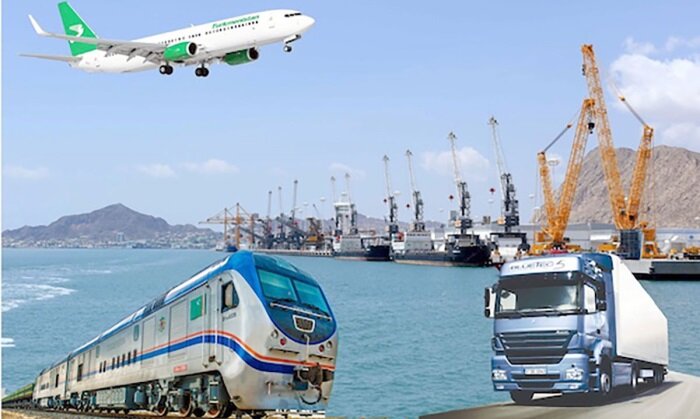Expert Korganbaev explained who and why in the CIS member republics would support the ideas of terrorists.
 The events in Afghanistan indicate that the Taliban (a terrorist organisation banned in the Russian Federation) has become not only the new power in the country. The powerful rise of the radical religious movement directly affects the mood in the society of the Central Asian states, and may also jeopardize the ongoing and potential projects involving Afghanistan.
The events in Afghanistan indicate that the Taliban (a terrorist organisation banned in the Russian Federation) has become not only the new power in the country. The powerful rise of the radical religious movement directly affects the mood in the society of the Central Asian states, and may also jeopardize the ongoing and potential projects involving Afghanistan.
In an interview with the CentralAsia.news editorial staff, a political expert Mederbek Korganbaev spotlighted these two factors. He also mentioned Ahmad Massoud, whose activities were the focus of attention of politicians from the CIS states.
‘Panjshir lion cub’
The victory of the Taliban in Afghanistan is not complete. The son of the assassinated leader of the Northern Alliance Ahmad Massoud led fierce resistance against the Taliban. Certainly, he is not such an influential figure in the country as his father, but he has received solid support from his fellow citizens. Now, the oppositionists and associates controlled by him are in the Panjshir Gorge.
Korganbayev stressed that Massoud’s detachments could hardly resist the Taliban without external assistance. According to the expert, Russia, Iran and Tajikistan can help the leader of the National Resistance Front. The political scientist explained that, for example, Dushanbe could be in contact with ethnic Tajiks of Massoud.
According to some reports, Marshal Abdul Rashid Dostum and his people are also opposing the radicals who have come to power. The interlocutor believes that Tashkent will continue to support this commander of Uzbek origin.
A source of concern
The official authorities of Kyrgyzstan, Kazakhstan, Uzbekistan and Tajikistan are following cautiously the developments of the situation in Afghanistan. Tashkent and Dushanbe are now on tiptoe, they are looking for all possible solutions and ways to reduce the risk of a conflict with the Taliban. Korganbaev stressed that despite the Taliban’s assurances of peace and friendship, Uzbekistan and Tajikistan realised that the situation in Afghanistan could change at any moment.
“Yes, the Taliban are busy with the internal arrangement of their power and suppression of resistance of their opponents and are unlikely to go towards Central Asia. However, there are people from the Central Asian republics in the ranks of the insurgents who dream of returning to their homeland and overthrowing the existing secular regimes. The presence of the secular authorities in Afghanistan is definitely beneficial for the neighbouring countries, as well as for Russia and China,” the expert believes.
The interlocutor recalled that the Americans had been on Afghan soil for 20 years. Leaving Afghanistan, the US military did not stint: they left weapons, equipment and ammunition worth billions of dollars in the country. Washington was clearly aware of who might soon get it. Thus, the hotbed of tension near the borders of the CIS member states had been increased by the hands of America.
Taliban influence outside of Afghanistan
The victory of the Taliban was an example to follow for other terrorist movements operating in the Central Asian region and Russia, the political scientist stated. This also applies to the separatist movement in China.
“The seizure of power by the Taliban is an impulse for ideological feeding of terrorist cells, which may attempt to repeat, to some extent, the actions of the insurgents in the Central Asian states. Religious radicalism, the ideas of terrorism and separatism are currently penetrating into the world outlook of certain groups of society. Basically, these are low-income people who do not have complete secondary and higher education. Corruption in law enforcement agencies and judicial institutions, abuses of local administration officials, ineffective laws inspire certain people with dislike for government officials, denial of the constitutional order,” Mederbek Korganbaev explained.
The expert believes that such people turn to religion and are caught in nets of radicals to find answers to their questions and calm their souls, where, the rejection of the secular state increases through psychological manipulation. The ideology of radicals and terrorists makes secular government illegal.
There was also a category of people in the Central Asian countries for whom membership in a terrorist organisation was a social lift and a chance to assert themselves and make progress, Korganbaev added. Citizens with such a worldview can actively join the ranks of the Taliban. After having the ‘run-in’ in the battles in Afghanistan, they can return to their homeland and begin to act on the example of the Taliban. Thus, the number of those who sympathize with the radicals will increase.
The Central Asia countries tried to develop partnerships with Afghanistan for several years until the insurgents came to power. Kabul has become a participant in the international projects. Such as CASA. The project involves supplying electricity to Afghanistan and Pakistan from Kyrgyzstan and Tajikistan.
Korganbaev noted that the Taliban would not ‘close themselves with a wall’. External relations and projects are of interest to the terrorist movement. However, the wishes and words of the Taliban are not enough.
“Can the Taliban continue to implement this project? Will energy sector specialists and major donors work with them? Or will the project be frozen until better times? I think that everything depends on the decision of the donors. Financial institutions are assessing the risks of losing investments and reputation, because such large-scale projects have never been implemented in cooperation with the terrorist movement,” - the interlocutor explained.
He reminded that the key component in the implementation of economic projects was stability and legitimacy of the authorities.






